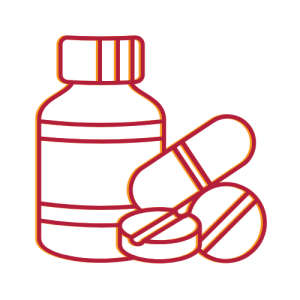Trained Medication Administration (TMA) is a key part of making sure people get their medications safely and effectively. In this article, we’ll share what TMA is all about and why it’s so important for those in the healthcare industry and the patients they serve.

Understanding Trained Medication Administration (TMA)
What is Trained Medication Administration (TMA)?
TMA stands for Trained Medication Administration or Trained Medication Aide. A TMA is a healthcare professional who is specifically trained to assist with medication administration in a variety of care settings. This role is essential to ensure that patients receive their prescribed medications safely and correctly.
Who typically provides TMA?
TMA services are typically provided by trained personnel such as Certified Nursing Assistants (CNAs), medical assistants, and direct care staff working in assisted living facilities. These individuals take specialized training to prepare them for the responsibilities of medication management and administration.
If you’re not a CNA yet but want to get there, explore our CNA training programs to take the next step.
What’s the Difference Between TMA and Other Healthcare Roles?
The primary difference between a TMA and other healthcare roles is the focus on medication administration. While healthcare professionals such as CNAs and nursing assistants may be involved in providing personal care and support to patients, a TMA has acquired additional specific training that allows them to handle medications. Other healthcare roles, like registered nurses or pharmacists, have more extensive training and broader responsibilities in healthcare that include comprehensive patient assessment, diagnosis, and treatment planning.
Why Trained Medication Administration Is Important
Healthcare professionals who are trained for medication administration are able to provide additional care to their patients and teams.
This includes:
Improved Quality of Care
Trained Medication Administration training ensures medical workers and nursing assistants know the skills needed for accurate and consistent medication delivery.
Patient Safety
Proper training reduces the chance of errors and ensures correct dosage/timing.
Support for Healthcare Teams
When nursing assistants and CNAs are equipped with the skillset to provide medication administration to patients, it supports the whole healthcare team by freeing up registered nurses to focus on higher-level tasks.
Regulatory Compliance
And the final reason, TMA is important, but one of the most important is adhering to state guidelines and medical facility requirements.
Who Needs TMA Training?
Are you still wondering if you are a good candidate for TMA training? Here are several types of medical workers who benefit from trained medication administration certification.
- CNAs looking to expand their skills
- Direct support professionals in group homes or assisted living
- Caregivers in long-term care facilities
- Healthcare staff required by their employer to be TMA certified
What You’ll Learn in a TMA Training Program
As the name suggests, TMA training involves learning proper medication administration techniques, but it’s a lot more than that. In the course, you will learn about body systems and medications for each, as well as the administration of non-parenteral medication. You will learn about proper documentation and reporting procedures. You’ll also learn about legal and ethical issues related to medication administration and safety protocols to avoid potential errors. Additionally, you will gain an understanding of how to identify side effects and when to report any issues that arise.
Benefits of Completing TMA Training
One of the main benefits of completing Trained Medication Administration (TMA) training is the opportunity to take on more responsibilities in the workplace. This can lead to career advancement and increased employment options for medical professionals who acquire this enhanced skillset, as some employers may even require TMA certification for job candidates. Not only that, but having TMA certification gives medical professionals, such as nursing assistants, greater confidence in their ability to provide quality patient care.
Get Started With HeartCert’s TMA Training
At HeartCert, we know how busy life can be! That’s why our TMA training programs are designed to fit seamlessly into your schedule. Our comprehensive hybrid format Trained Medication Administration training combines engaging online classes with hands-on lab days, so you get all the information and hands-on skills you need to succeed in your new role. Our TMA curriculum is Minnesota State-approved, and our knowledgeable instructors are here to support you every step of the way.
Explore our class options today, and we’ll help you gain the skills and experience you need to take your healthcare career to the next level.
HeartCert is your trusted training partner for CPR, ACLS, PALS, EMR, First Aid, CNA, IV, EKG and more, throughout the United States.Courses include CPR/AED/First Aid, Basic Life Support (BLS), Advanced Cardiac Life Support (ACLS), Pediatric Advanced Life Support (PALS), Certified Nursing Assistant training, IV training, EKG training, babysitter basics and more. Courses and certifications from both the American Heart Association and American Red Cross are available. We offer virtual courses and certifications, in all 50 states as well as in-person classes at our headquarters, HeartCert CPR Eagan and major cities in Iowa, Illinois, Michigan, Minnesota, Missouri, Mississippi, Nebraska, Pennsylvania, Texas and Wisconsin.


